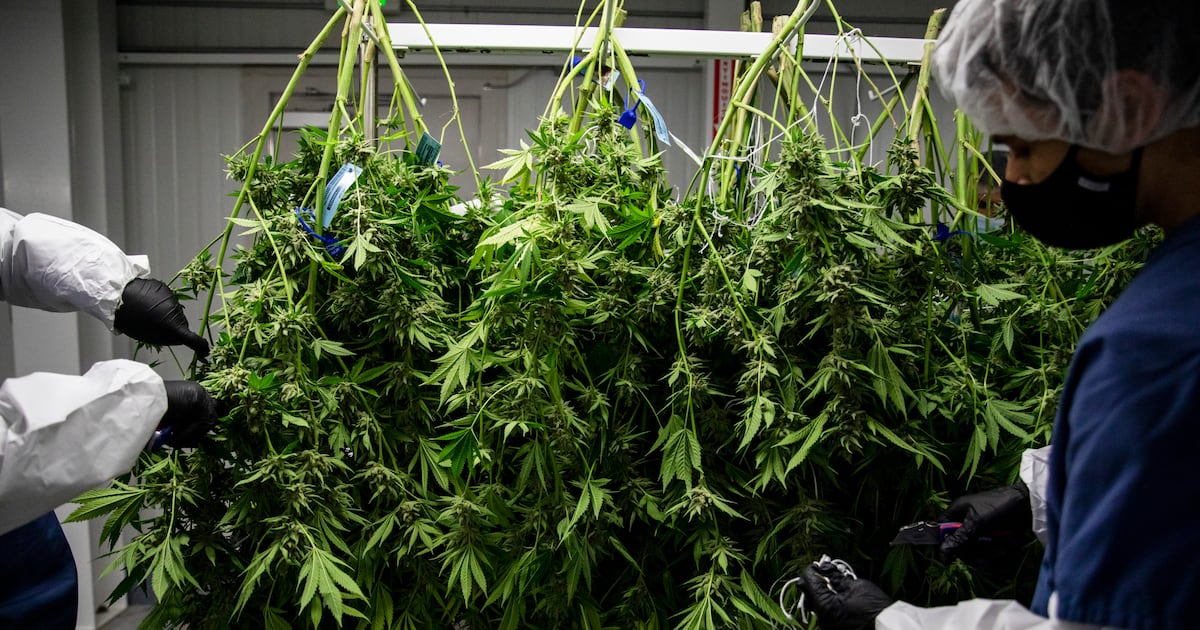Explore
Simple surveys like this fail to capture the complexity of the marijuana policy issues, especially when those same policies would require amending Georgia’s constitution, a virtually irreversible decision if later found to be harmful to our state’s children. This is critical, as legalization can decrease how harmful children and teens think marijuana could be in their own life and could prompt them to start or increase their usage. No one wants to see their child dependent on cannabis.
What is missing from the current debate is the rapidly evolving body of peer-reviewed research warning of marijuana’s public health risks. Today’s marijuana is not the same substance people recall from decades ago.
THC — the psychoactive compound in marijuana — has soared in potency, with some commercial products exceeding 90% THC, a far cry from the 3% typical in the 1990s. This escalation has been directly linked in studies to a rise in psychosis, schizophrenia-like symptoms and emergency psychiatric hospitalizations, especially among young users. A 2022 systematic review in The Lancet Psychiatry found high-potency cannabis use to be strongly associated with increased risk of psychotic disorders.
Equally troubling, recent studies show that approximately 3 in 10 marijuana users now develop some form of cannabis use disorder — a clinical diagnosis that often involves dependence and withdrawal. This statistic, confirmed by National Institutes of Health-funded research, challenges the long-standing myth that marijuana is “non-addictive” and safer than alcohol. If anything, its growing prevalence, commercialization and ever-increasing THC levels make it a unique threat to Georgia’s families and youth.
Recent international research underscores the concerns about youth cannabis use post-legalization. A peer-reviewed study published in JAMA Network Open found that in Canadian provinces where cannabis edibles and extracts were legalized in October 2019, there was a 26% increase in overall teen cannabis use, with edible consumption alone rising by 43%. These findings suggest that legalization, especially of products appealing to youth, can lead to significant upticks in adolescent use. Such trends raise alarms about the potential for similar outcomes in Georgia, should recreational marijuana be legalized without stringent safeguards to protect our youth.
In addition, there is hardly any measurement and reporting of THC levels in deceased and impaired drivers in Georgia, so we (unlike a number of other states) have no idea how many people are dying on our highways every week because of THC impairment. This means that an important public safety hazard has gone largely unaddressed. We are on the brink of legalizing a mind-altering substance while flying blind on traffic safety data.
Explore
To be clear, Georgians for Responsible Marijuana Policy’s opposition to legalization is not rooted in stigma or outdated beliefs, but in a sincere desire to protect public health, youth welfare, pregnant mothers and road safety.
There are also racial equity concerns worth exploring, but commercialization has not been shown to resolve such systemic inequalities. In fact, it has frequently enriched large corporations while disproportionately exposing disadvantaged communities to heavy marketing and high addiction rates — the same communities that ending the war on drugs was supposed to help.
As Georgia lawmakers consider how to move forward, we urge voters and policymakers not to be swayed by polling headlines based on binary surveys or the false notion that legalization is harmless or inevitable.
If the AJC wants to conduct another poll, let it ask Georgians whether they support legalization even when it means higher rates of addiction, psychosis and impaired driving with no practical testing infrastructure.
Explore
Michael Mumper is executive director and Gregg Raduka, Ph.D., ICPS, is chair of the governmental affairs committee for Georgians for Responsible Marijuana Policy in Fayetteville.
Georgia voters and policymakers should not be swayed by binary polls showing a majority of residents supporting marijuana legalization until they have all the facts. Read More


